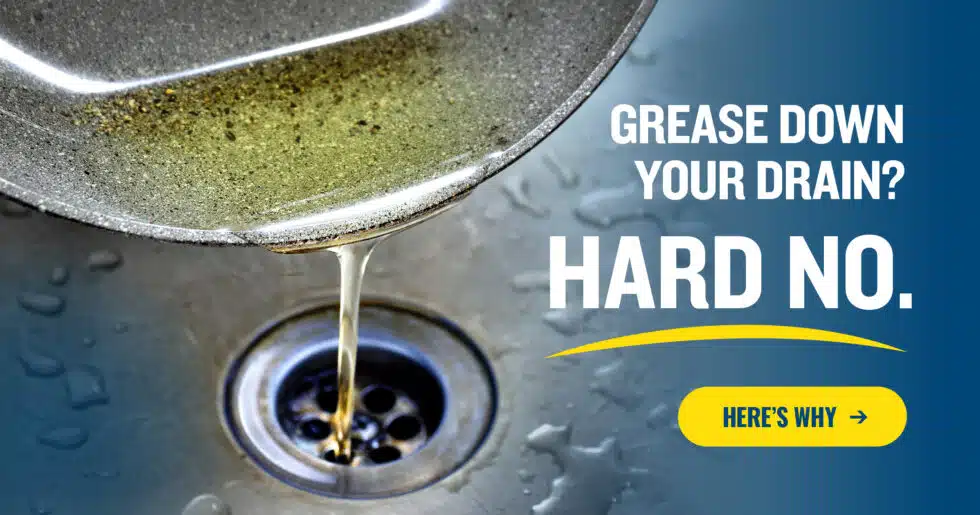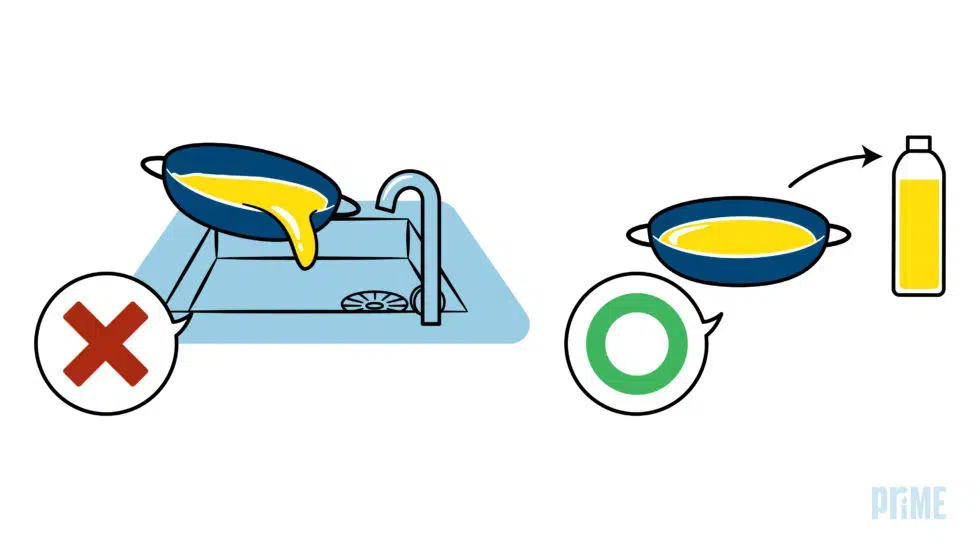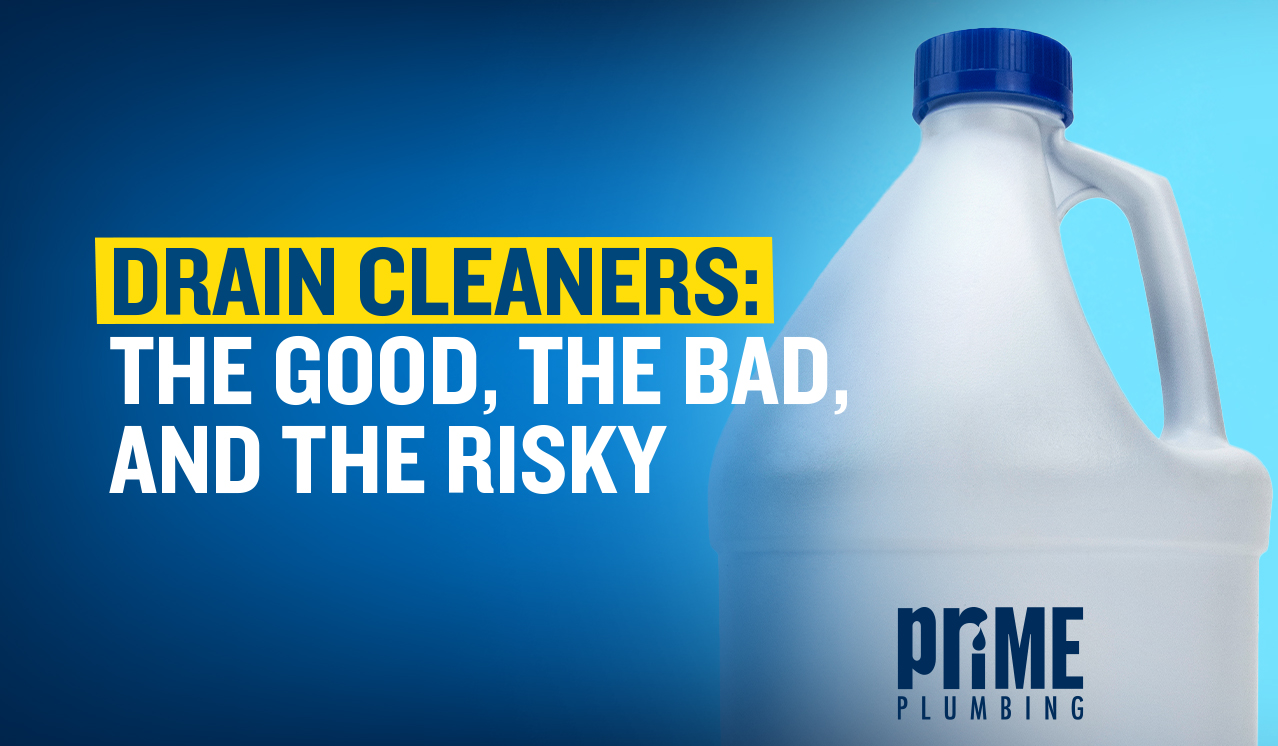Pouring Grease Down the Drain: Why It’s Bad and What It Can Do to Your Pipes

Why You Should Never Pour Grease Down the Drain
Think about the last time you fried something in a pan or a deep fryer. The oil that crisped up your bacon or chicken to the perfect crunchy texture might be a liquid when you pour it, and it might be a liquid when you’re cooking, but it doesn’t always stay that way. After some time, that oil will congeal into a gummy-like paste.What Happens When Grease Is Poured Down the Drain
After it’s poured down the drain and hardened, oil becomes a sticky magnet for debris that can clog your pipes. The consequences of pouring grease down the drain typically start innocently enough, with water taking longer to go down. But as the buildup continues to grow, it can cause a complete backup of your system. Grease that isn’t disposed of properly can also wreak havoc on septic tanks and community sewer systems.How To Handle Leftover Grease
If your Aunt Edna is anything like the other Aunt Ednas we know, chances are she’s already hip to this trick, but it bears repeating. The best way to dispose of hot grease is to remove any remnants of food and pour it into a heat-resistant can or jar (pro tip: glass, ceramic or metal vessels work perfectly) for it to harden. Once the grease has congealed, you can either throw the entire can into the garbage or, if it’s just a small amount, use paper towels to wipe the container clean. On the other hand, many people will save recycled grease, especially bacon grease, for later use as it delivers a delicious, salty and fatty flavor to dishes like cornbread, biscuits, pasta or cooked veggies. In the old days, many home cooks would store their grease can on the back of the stove or a counter. Today, experts caution against leaving the grease at room temperature, suggesting instead to keep it either in the freezer or refrigerator.
On the other hand, many people will save recycled grease, especially bacon grease, for later use as it delivers a delicious, salty and fatty flavor to dishes like cornbread, biscuits, pasta or cooked veggies. In the old days, many home cooks would store their grease can on the back of the stove or a counter. Today, experts caution against leaving the grease at room temperature, suggesting instead to keep it either in the freezer or refrigerator.
What To Do if You’ve Poured Grease Down the Drain
No amount of grease down the drain is good for your plumbing, but we know that stuff happens and that Aunt Edna can be a little forgetful sometimes. If you catch it quickly, your best bet is to flush the system with hot water and dish soap as it can restore the grease back to a liquid form. Boiling-hot water is ideal, but not all pipes can withstand such high temperatures. Store-bought drain cleaners can be effective, but those should be used sparingly. Additionally, home remedies like pouring baking soda and white vinegar (one-half cup of each, with baking soda going down first, followed by the vinegar) may also work when topped off with hot water. If you find that your pipes are clogged as a result of grease going down the drain, the professionals at Prime Plumbing are always here to help. Save time, call Prime!
HOW CAN WE HELP ?
Contact Us Today


Why Choose Prime Plumbing?
Professional Services at an Affordable Price
- Transparent Pricing
- No Additional Charges for Overtime
- Flexible Financing Solutions
- Thorough Employee Background Checks
- Complimentary Second Opinions









